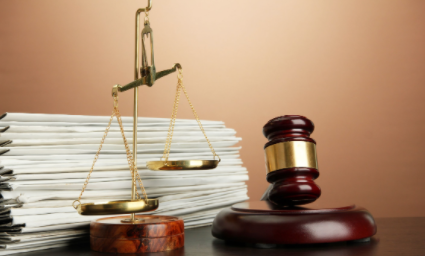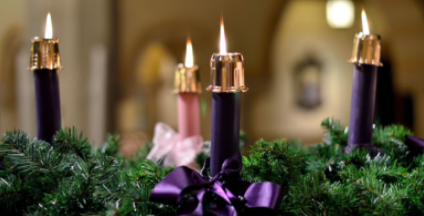
How can you act for a murderer? is the dinner party question – to which the reply is – How can one not act for an alleged murderer? The “murderer” is not “a murderer” until convicted; until then, he or she is ”the accused”, who may or may not be found guilty.
After all, the alleged murderer is probably down on his luck, with few friends or family to support him or her, facing a lifetime in gaol. The alleged murderer may be a person with poor communication skills, who has had a lifetime of disadvantage. Even if the alleged murderer did the killing, there may be some defence, including self-defence or defence of another, or mistake, or insanity. If there is no defence, there may be extenuating circumstances, to be raised on sentence. A person does not lose his or her human dignity by reason of being charged with murder, nor is a person guilty because some allegation is made. As Pope Francis reminds us in his encyclical, Fratelli Tutti, even the worst of criminals retains his or her human dignity.
NOT EVERY ALLEGATION WELL-BASED
Not every allegation is well-based. So, how can one refuse to represent the alleged murderer? particularly as the alleged murderer may have few possibilities of legal representation. Ours is not a legal system in which one is guilty by reason of being charged, by reason of an allegation being made.
BLINDFOLDED JUSTICE
Before a person is convicted there must be a fair hearing, before an independent decision-maker/s who bring an open mind to proceedings, in open court, in the course of which evidence is presented, and at the end of which the person is convicted, only if the charge is established, according to law, and beyond reasonable doubt. The goal of our legal system is justice – which involves advocates appearing for all, regardless of who they are, rich or poor, reputable or disreputable, popular or unpopular. Justice requires the appointment of judges, possessed of humanity and common-sense, who have broad experience, having appeared for many different persons in different jurisdictions. Justice is blindfolded. Advocates should not discriminate in who they represent. Judges must be fair-minded, and respectful of all those who come before them.
R v TUCKIAR
All this is illustrated by R v Tuckiar (1934) 52 CLR 335 a case which I sometimes think is the most important case in the whole of the Commonwealth Law Reports There the accused, Tuckiar, who was an Aboriginal in the Northern Territory, who spoke no English, and who was completely unfamiliar with the legal system, was charged with the murder of a police constable. During the trial, counsel for Tuckiar interviewed Tuckiar at the suggestion of the trial judge to ascertain whether Tuckiar agreed with evidence by a witness for the Crown of a confession allegedly made by Tuckiar to the witness. After interviewing Tuckiar, his counsel in open court said that he was in the worst predicament in all his legal career, effectively acknowledging Tuckiar’s guilt. During the summing up to the jury, the trial judge commented on the failure of Tuckiar to give evidence. Tuckiar was found guilty of murder. This was despite the fact that Tuckiar may have had a reasonable defence – self-defence, or defence of his wives, who appear to have been mistreated by the police.
The High Court quashed the conviction, Gavan Duffy CJ, Dixon, Everett and McKiernan JJ, holding that the trial judge’s comment alone was sufficient to render the conviction bad. Starkey J held that the actual charge given to the jury, in the circumstances of the case, denied the substance of a fair trial to the accused. Gavan Duffy CJ, Dixon, Everett and McKiernan JJ stated that counsel had a plain duty, both to his client and to the Court, to press such rational considerations as the evidence fairly gave rise to in favour of complete acquittal, or conviction of manslaughter only.
After Tuckiar was convicted, his counsel made a statement in open court to the effect that Tuckiar admitted the evidence called by the Crown and the confession made by Tuckiar to a witness was correct. The High Court held that counsel should not have divulged confidential information acquired in the course of a conference. An aspect of this matter only glancingly commented on by the High Court is the absence of an interpreter able to adequately translate from Tuckiar’s language into English.
To my mind, Tuckiar is a classic which illustrates the ethical obligations, both of judges and advocates, and provides guidance to anyone who is acting on behalf of a party, not only in criminal proceedings, but in civil proceedings. It is a matter of regret that many lawyers are unfamiliar with this High Court decision. Tuckiar was released from prison in circumstances in which, because of the misconduct of both the trial judge, and Tuckiar’s counsel, a fair trial could not be had. Following Tuckiar’s release from jail, it appears that Tuckiar was murdered by police.

ADVENT
Sunday 29 November is the first Sunday of Advent, the season in which we prepare for the coming of the Christ child. Jesus in the Gospel reading for the first Sunday of Advent says: Take heed, watch and pray; for you do not know when the time will come. It is like a man going on a journey, when he leaves home and puts his servants in charge, each with his work and commands the doorkeeper to be on the watch. So, stay awake – for you do not know when the master of the house will come, in the evening, or at midnight, or at cockcrow, or in the morning – less he come suddenly and find you asleep. And what I say to you I say to all: Stay awake.
THANKS
I thank Tamara York from Herro and Associates, who sends these Pandemic Letters out, illustrating the texts with beautiful art, and presenting them in a readable fashion. I also thank Fr Peter Joseph, the Society’s Chaplain, who is usually presented with these texts at the last minute, and who has repeatedly saved me from all sorts of stupidities. I thank John Day, Richard Kouchoo and Tony Lahoud who have been working on a new website for the Society. I thank Robert Colquhoun who is having a second round as treasurer of the Society. I also thank Richard Perrignon, Master of Sacred Music at St John’s College within the University of Sydney, for his musical accompaniment to the Patronal Feast Day Mass on 22 June. I thank Giles Tabuteau, Professor Michael Quinlan and Matthew Lo for their advice and judgment. Finally, I thank Anthony Herro, whose generosity in providing a secretariat for the St Thomas More Society, allowing the attention of his staff to be deflected from retail leases and associated litigation, enables the Society to function in a way which would otherwise be impossible.
Michael McAuley
